Raimondas Kiveris
Kartta Labs: Collaborative Time Travel
Oct 07, 2020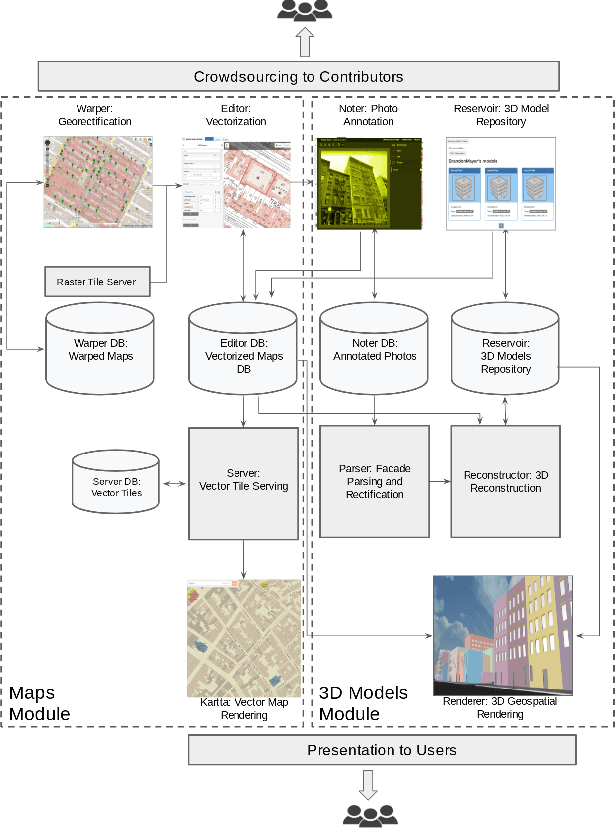
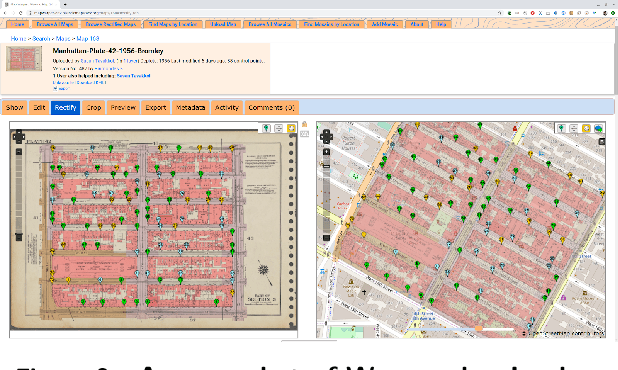
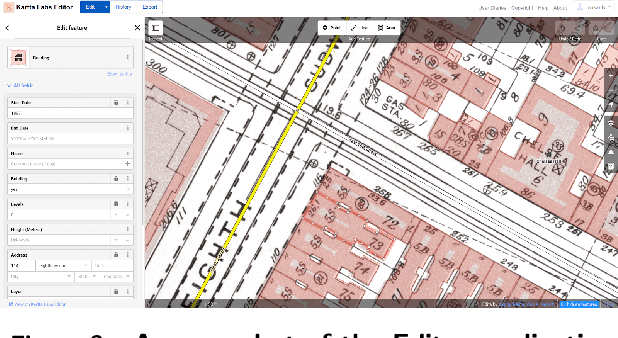
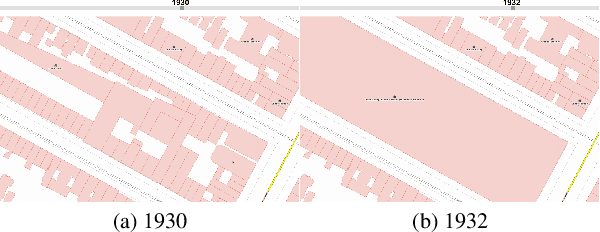
Abstract:We introduce the modular and scalable design of Kartta Labs, an open source, open data, and scalable system for virtually reconstructing cities from historical maps and photos. Kartta Labs relies on crowdsourcing and artificial intelligence consisting of two major modules: Maps and 3D models. Each module, in turn, consists of sub-modules that enable the system to reconstruct a city from historical maps and photos. The result is a spatiotemporal reference that can be used to integrate various collected data (curated, sensed, or crowdsourced) for research, education, and entertainment purposes. The system empowers the users to experience collaborative time travel such that they work together to reconstruct the past and experience it on an open source and open data platform.
Nostalgin: Extracting 3D City Models from Historical Image Data
May 06, 2019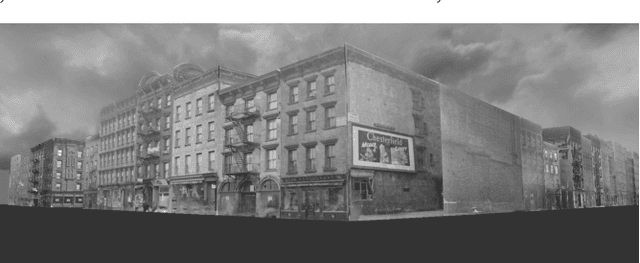

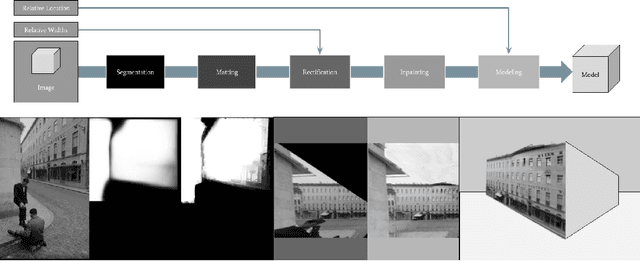

Abstract:What did it feel like to walk through a city from the past? In this work, we describe Nostalgin (Nostalgia Engine), a method that can faithfully reconstruct cities from historical images. Unlike existing work in city reconstruction, we focus on the task of reconstructing 3D cities from historical images. Working with historical image data is substantially more difficult, as there are significantly fewer buildings available and the details of the camera parameters which captured the images are unknown. Nostalgin can generate a city model even if there is only a single image per facade, regardless of viewpoint or occlusions. To achieve this, our novel architecture combines image segmentation, rectification, and inpainting. We motivate our design decisions with experimental analysis of individual components of our pipeline, and show that we can improve on baselines in both speed and visual realism. We demonstrate the efficacy of our pipeline by recreating two 1940s Manhattan city blocks. We aim to deploy Nostalgin as an open source platform where users can generate immersive historical experiences from their own photos.
 Add to Chrome
Add to Chrome Add to Firefox
Add to Firefox Add to Edge
Add to Edge